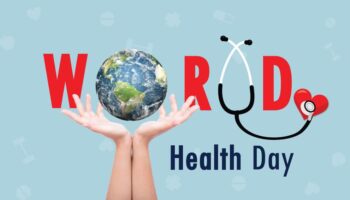Supplements have piqued people’s interest all across the world. Moreover, half of the population in various regions consumes at least one nutritional supplement, most of which are multivitamins such as vitamin C supplements. In total, people spend about $28 billion on vitamins and other supplements each year. As a result, it’s not a coincidence that people frequently inquire, “Which ones work?” Is it safe to use them? Is it worthwhile to spend the money on them?
There are various supplements, but there are no easy answers about most of these advantages because marketers’ claims are based on very little science. Most of the knowledge we perceive we know is based on myth and not research. Here are some to assist you in making an educated decision regarding the supplements people intend to take. Try to distinguish between fiction and facts.
Supplements, regulated in the same way that pharmaceuticals are, and those sold in drugstores are claimed to have been approved by the state government.
Fiction.
Supplements are not monitored or examined in the same way that medications are. Before people may commercialize a drug, it must be concerned for quality. You must disclose potentially dangerous side effects on medicine labels. On the other hand, suppliers are not required to justify their products’ quality or effectiveness, and the production process is largely unregulated. Years back, Health Experts evaluated joint supplements from 12 businesses and discovered that only two companies’ products contained 100% of the supplement. The rest were polluted with other vegetables, had incorrectly stated components, or were primarily made of fillers like rice, soy, or wheat. Similar DNA testing of herbal supplements according to American research in early 2015, they discovered that the majority didn’t contain much — if any — of the natural herb listed on the label.
Supplements with Antioxidants effects, including vitamins E, C, and beta-carotene, can minimize the risk of cancer and heart disease.
Fiction.
Antioxidants in pills do not appear to protect against cancer or heart-related disease. Early laboratory research revealed that higher antioxidant levels could reduce free-radical damage linked to cancer formation. However, the majority of human investigations contradict this notion. Indeed, data suggest that the antioxidant beta-carotene raises the chance of lung cancer among smokers.
Zinc can aid in the treatment of the common cold.
Fiction or Fact?
Multiple types of research have proved that taking zinc supplements or syrup within 24hrs of the first cold symptom reduced the length of the cold by one day. However, if taken in excessive levels regularly, zinc can interfere with copper absorption and even weaken the immune system. During the first day of a cold, Experts advise taking 75 mg of zinc per day “with caution.” Avoid zinc nasal sprays since they can cause lasting effects of loss of smell. Forget about Airborne and other formulations containing a jumble of minerals and vitamins previously touted as cold cures. There is no evidence that these formulae work, and some of them have large amounts of vitamin A that can damage bones.
You cannot overdose yourself with Vitamin C Supplements
Fact
As your body cannot store vitamin C, when you take more than you require, the excess is excreted in urine by your kidneys. However, this does not rule out the possibility of unfavourable side effects in large doses. Vitamin C is among the nutrients, effectively the highest nutrient obtained through food and supplements together.
Megadoses of vitamin C supplements have been shown to cause bloating and digestive upset, diarrhoea, nausea, vomiting, heartburn, headaches, insomnia, and kidney stones. While some people may be fine taking this quantity or more, massive doses of vitamin C supplements have been shown to cause various health profiles such as:
- bloating and digestive upset,
- diarrhoea,
- nausea, vomiting,
- heartburn,
- headaches, and
- Kidney stones.
When taking antibiotics, probiotics can help avoid diarrhoea.
Fact.
Probiotics may help to prevent diarrhoea induced by antibiotics, according to some data. However, be cautious when selecting a product. Although probiotics don’t require a prescription, it’s still a good idea to consult your doctor first and take the prescribed probiotics. Because they are live microorganisms, they may not be suitable for persons with weakened defence systems or those who are terminally ill.
Calcium supplements can help older women avoid bone fractures.
Fact.
True, calcium is required to form bone in our bodies, and vitamin c deficiency can result in bone disorders. Furthermore, according to a study, enough calcium appears to have a minor positive effect in people aged 50 and up. The best approach to gain the advantages is to consume calcium-rich foods like milk, yoghurt, collard greens, and canned salmon.
Nutritional supplements do not provide the equivalent benefits as food.
Fact.
Researchers have repeatedly observed a medical benefit in those who consume a specific diet containing nutrition of interest. They put the vitamin to the test in the laboratory and discovered that it could improve one’s health. The supplements business then separates the nutrient and sells them like a pill. Years later, research trials reveal that the vitamin in tablet form provides little or no effect. What exactly is going on? Whole foods offer a variety of critical elements that work together to help our bodies in diverse ways. Single micronutrients in pills have a minor impact on chronic conditions at best. Net result: Whole foods including fruits, veggies, whole grains, seafood, and milk include a diverse range of micronutrients that provide most of us with what we require for optimal health.
Conclusion
People are often concerned about their Supplements intake; consequently, more questions are raised than answers, so it’s critical to seek out trusted specialists, question any promises you hear, and remember that knowledge is the most excellent treatment. The only difficulty is that most people are unaware of supplements, such as the pros and cons of vitamin C Supplements; however, once you gave a thorough read to the above article, you are well-informed of all the Facts and Fiction.






